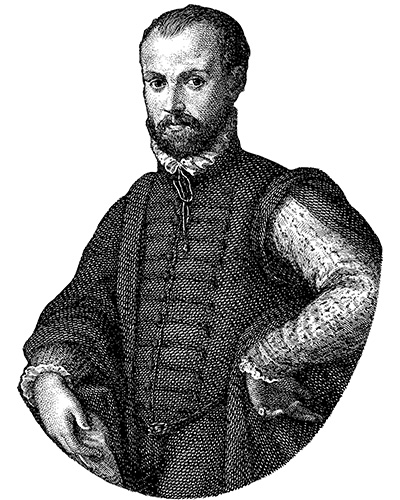By Prof. Simone Testa, Ph.D., ISI Florence Faculty
Thesoro politico (1589) is a collection of ambassador reports from several European countries, instructions to cardinals and papal nuncios on how to behave at the various courts. It is amusing to read such texts, as they show politics in the making, without intermediaries. Here there are no political writers who publish for a wider public, as the original texts were not intended for a wider audience.
Who collected all the material? Who decided to circulate it through the printing press? How was the book received? These are some of the questions the research addresses.
Here are some excerpts:
15-years old cardinal Alessandro Peretti da Montalto, the grandnephew of Pope Sixtus V, was instructed to hold a poker face when speaking to others: “Non fare mai mutazione del volto e mantenere la vista solita, perché chi non dà principio al pensare, non dà principio al fare” (do not change the expression of your face and keep the usual look. Those who do not allow others to think, do not allow them to act either).
Avoid trying to speak foreign languages, the instructor says, as it lowers your dignity.
When you need instructions, do ask them in writing, but never write instructions to others. It is easier to pardon the tongue than it is to pardon the pen, and if you write instructions down, you may not say “I did not say this”.
As your most trustworthy servant, do not choose the one who loves you most, but the one you trust the most.
A controversial Tuscan man from Volterra, Giovanfrancesco Lottini, took part in several Conclaves and was also one of the advisors to Cosimo I, Grand Duke of Tuscany. A sarcastic and trenchant character like so many other Tuscans before and after him, Lottini did not hide his cynicism. The pope’s election has nothing to do with the Holy Spirit – he affirmed – it is just a matter of personal and factional interest. And if a person needs to choose what Pope to support, he should make sure that “l’amore seguiti l’interesse e non viceversa” (love should follow interest and not vice versa).
It is better not to create alliances with the Pope, the Venetian ambassador from Rome wrote, as Popes are typically very old, and when they die the whole politics of the Church is turned upside down. Moreover, Popes can always find an excuse for withdrawing from an alliance, by putting forward the benefit of Christianity.

